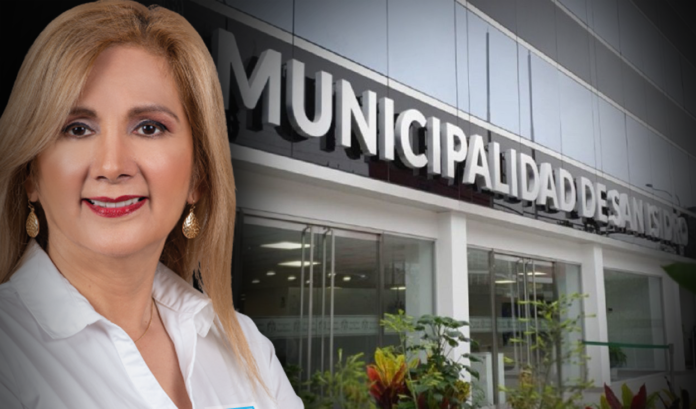Introduction
Nancy Chiabra holds a significant place in the political landscape of Bellavista, a district in Peru. Serving as the mayor (alcaldesa) in 1986, she navigated a challenging socio-political environment marked by economic hardship, civil unrest, and the demands of local governance. This article explores her life, political career, and the impact of her leadership during a tumultuous period in Peruvian history.
Early Life and Education
Nancy Chiabra was born and raised in Bellavista, where she developed a deep connection to her community. Her early life was characterized by a commitment to education and public service, qualities that would later define her political career. Chiabra pursued her education in local schools, excelling academically and demonstrating a strong sense of responsibility toward her peers and community.
As she matured, Chiabra recognized the challenges faced by her community, including poverty, lack of infrastructure, and limited access to basic services. These challenges motivated her to become involved in local politics, where she believed she could make a difference.
Political Climate in 1986
The political environment in Peru during the mid-1980s was fraught with instability. The country was grappling with the repercussions of decades of authoritarian rule, economic crises, and the rise of insurgent groups such as the Shining Path. The government faced significant challenges in providing security and essential services to its citizens. In this context, local leaders like Chiabra were tasked with addressing the immediate needs of their constituents while navigating the complexities of a turbulent political landscape.
Bellavista, being a densely populated urban district, was particularly affected by these issues. High levels of unemployment, inadequate housing, and rising crime rates created an urgent need for effective governance. Chiabra’s election as mayor came at a time when residents were yearning for leadership that could address their concerns and foster a sense of community.
Election Campaign
Chiabra’s campaign for mayor in 1986 was characterized by grassroots organizing and a focus on community needs. She ran as a candidate for the Peruvian Nationalist Party, which aimed to address the socio-economic issues plaguing many Peruvian communities. Her platform centered on improving local infrastructure, enhancing public safety, and promoting economic development through community initiatives.
Chiabra connected with voters through town hall meetings, door-to-door campaigns, and local events. Her approachable demeanor and genuine concern for her constituents helped her gain popularity among residents. Many saw her as a beacon of hope in a time of uncertainty, believing that her leadership could bring about much-needed change.
Leadership and Initiatives
Upon her election as mayor, Nancy Chiabra faced the daunting task of addressing the pressing needs of Bellavista. Her administration focused on several key areas:
1. Infrastructure Development
One of Chiabra’s primary goals was to improve the district’s infrastructure. She prioritized the construction and rehabilitation of roads, public transportation systems, and sanitation services. Chiabra recognized that adequate infrastructure was crucial for enhancing the quality of life for residents and fostering economic growth.
Under her leadership, several public works projects were initiated, providing much-needed jobs and improving access to essential services. These projects not only addressed immediate needs but also laid the foundation for long-term development.
2. Public Safety and Community Programs
In response to rising crime rates, Chiabra implemented community policing initiatives to enhance public safety. She worked closely with local law enforcement to foster relationships between officers and community members, emphasizing the importance of collaboration in addressing crime.
Additionally, Chiabra established programs aimed at youth engagement and social development. Recognizing that young people were particularly vulnerable to crime and violence, her administration invested in sports, education, and cultural activities to provide positive outlets for youth and encourage community involvement.
3. Economic Development
Chiabra understood the importance of economic stability for her constituents. Her administration focused on promoting small businesses and local entrepreneurship. Initiatives were launched to provide training, resources, and support for local entrepreneurs, fostering a sense of ownership and investment in the community.
Furthermore, Chiabra advocated for improved access to microloans and financial services for residents, enabling them to start or expand their businesses. By empowering local entrepreneurs, her administration aimed to stimulate economic growth and reduce unemployment in the district.
Challenges Faced
Despite her dedication and the positive strides made during her tenure, Chiabra faced significant challenges. The socio-political climate in Peru remained volatile, and her administration often contended with limited resources and bureaucratic obstacles. Additionally, external pressures from insurgent groups posed risks to public safety and stability.
Moreover, Chiabra encountered resistance from political opponents who questioned her leadership and decisions. Nevertheless, her commitment to her constituents and her resilience in the face of adversity earned her the respect and loyalty of many residents.
Legacy and Impact
Nancy Chiabra’s tenure as mayor of Bellavista in 1986 left a lasting impact on the community. Her focus on infrastructure development, public safety, and economic empowerment set a precedent for future local governance. The initiatives she implemented contributed to improving the quality of life for residents and fostering a sense of community pride.
Chiabra’s leadership style was characterized by her accessibility and willingness to engage with constituents. Her open-door policy encouraged residents to voice their concerns and participate in the decision-making process. This inclusive approach helped build trust between the community and local government, laying the groundwork for continued civic engagement.
Conclusion
Nancy Chiabra’s journey as the mayor of Bellavista in 1986 exemplifies the challenges and triumphs faced by local leaders in a complex political landscape. Her commitment to addressing the needs of her community and her innovative approaches to governance have left an enduring legacy in Bellavista. Chiabra’s story serves as a reminder of the importance of local leadership in fostering positive change and community development, particularly during challenging times. Her contributions continue to inspire future generations of leaders in Bellavista and beyond.
